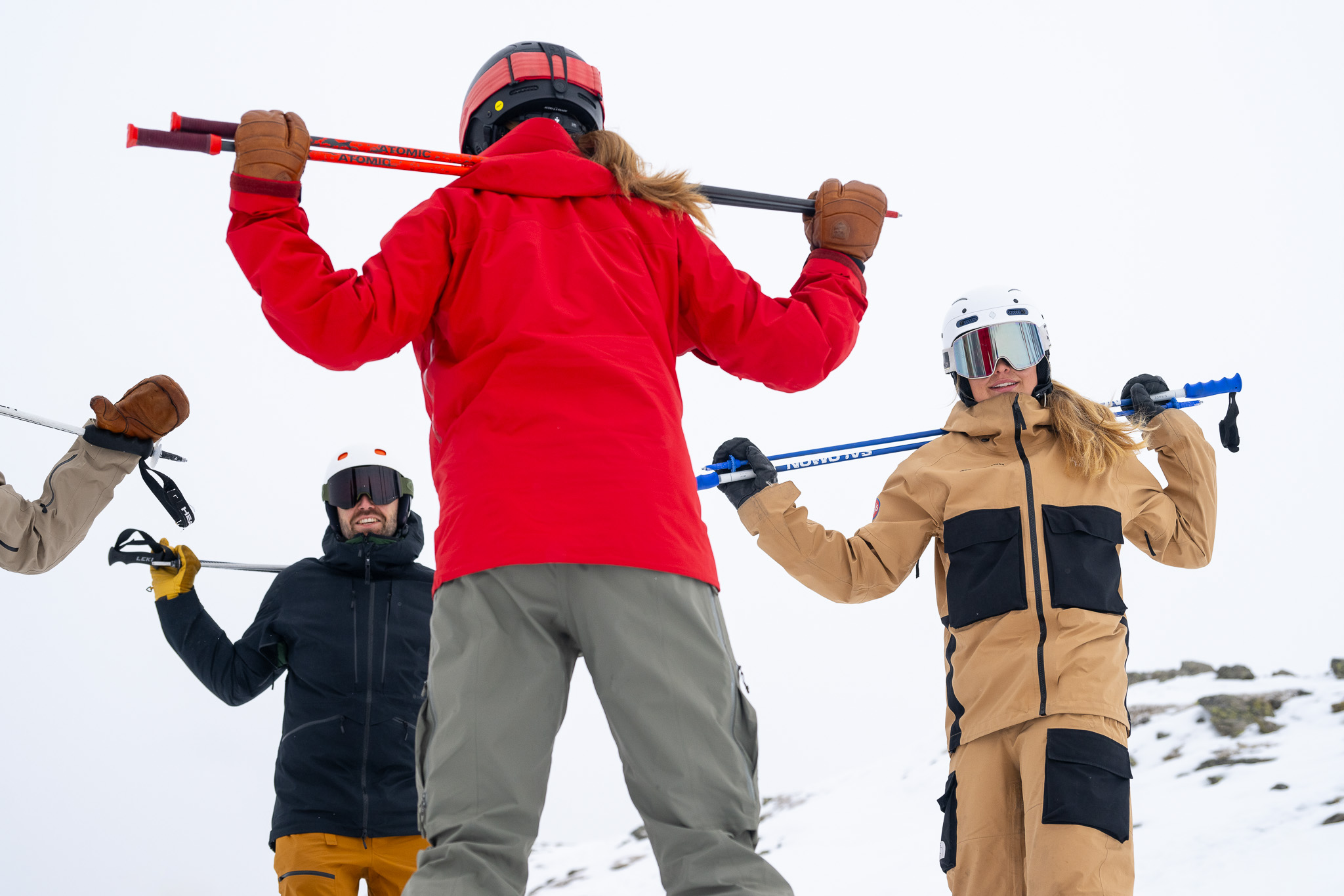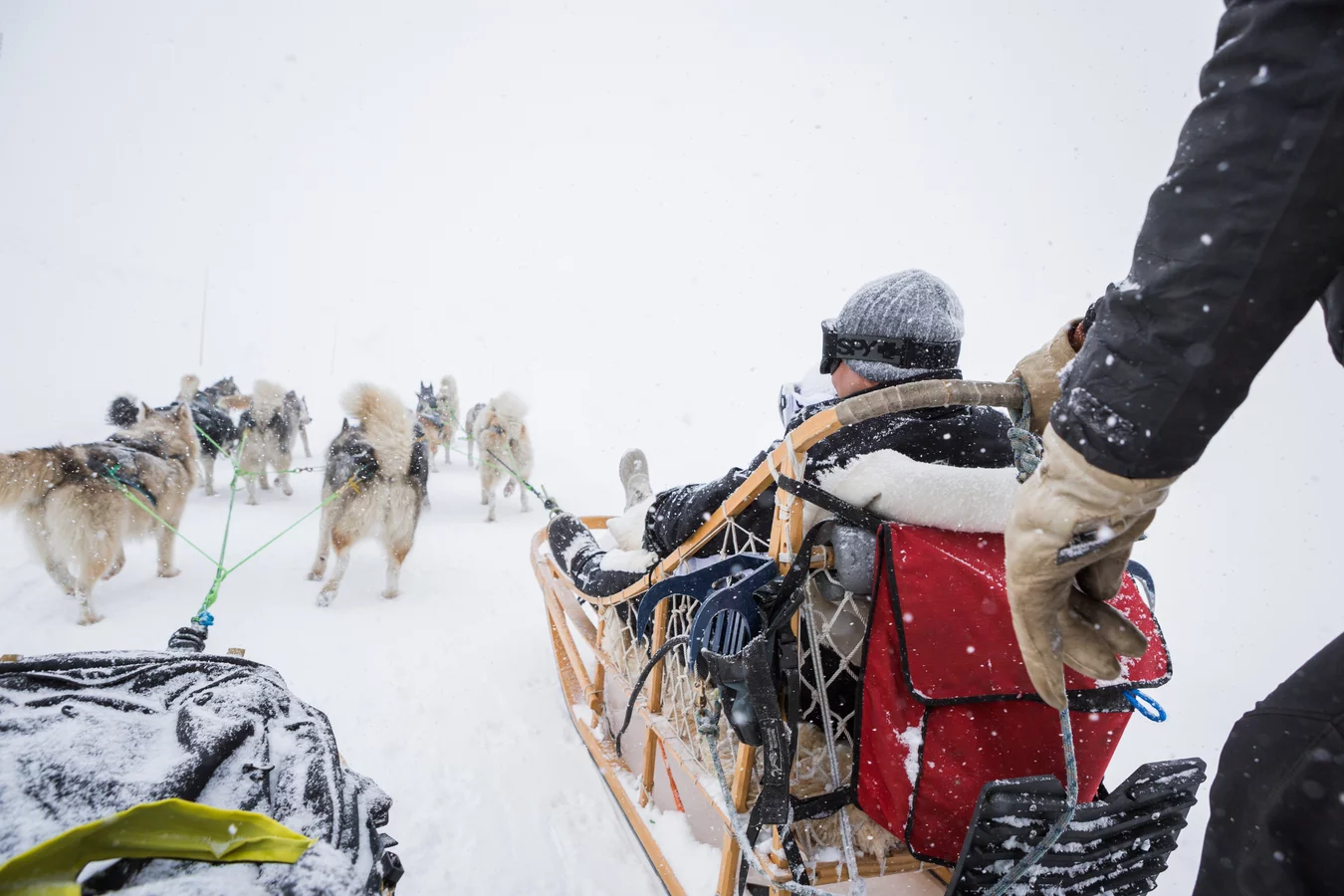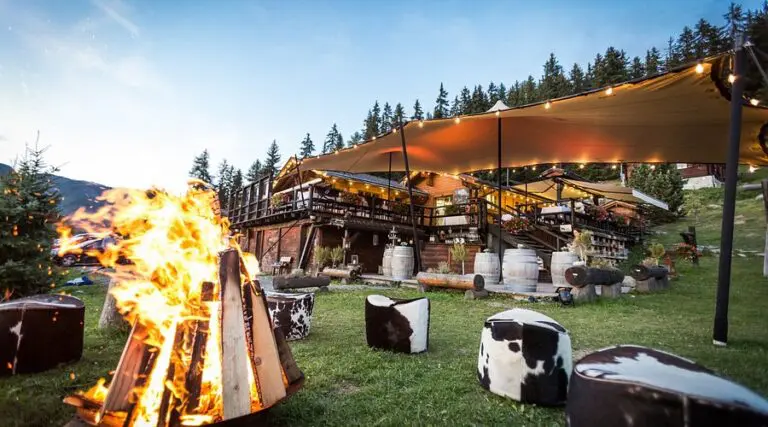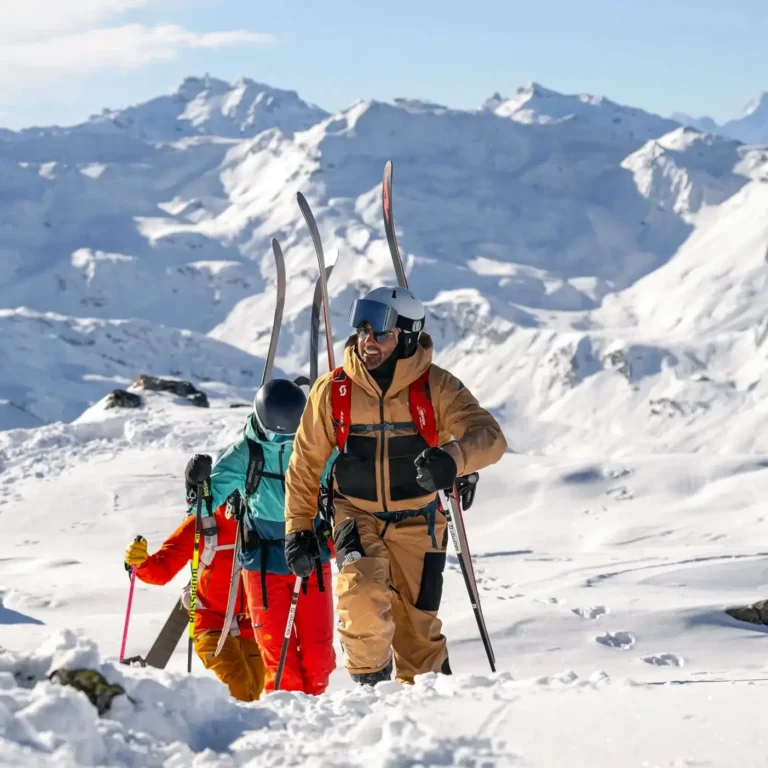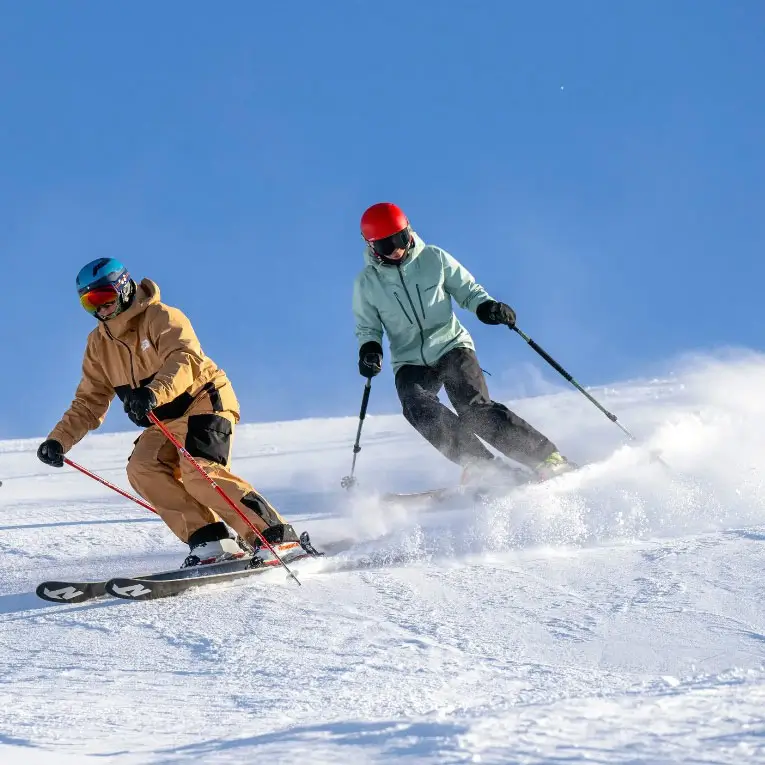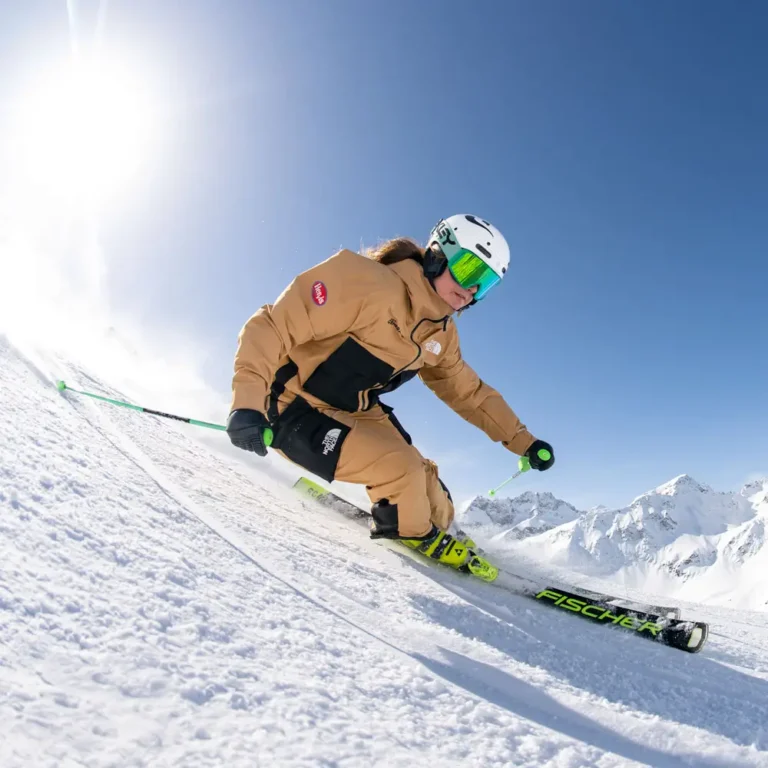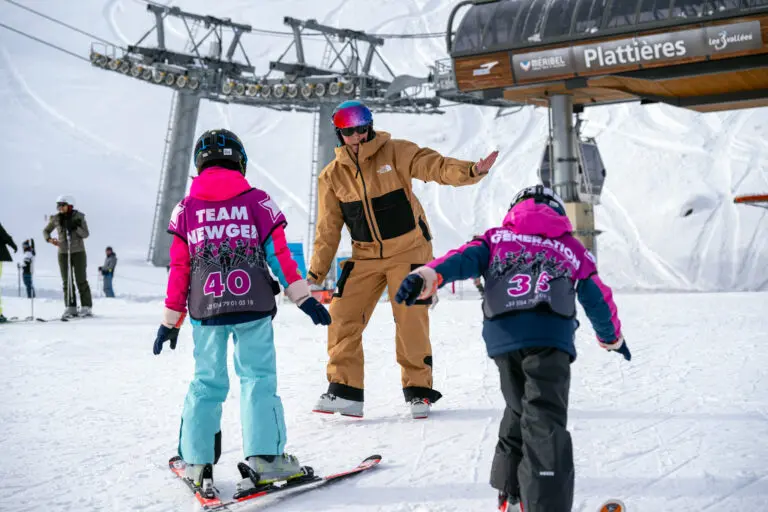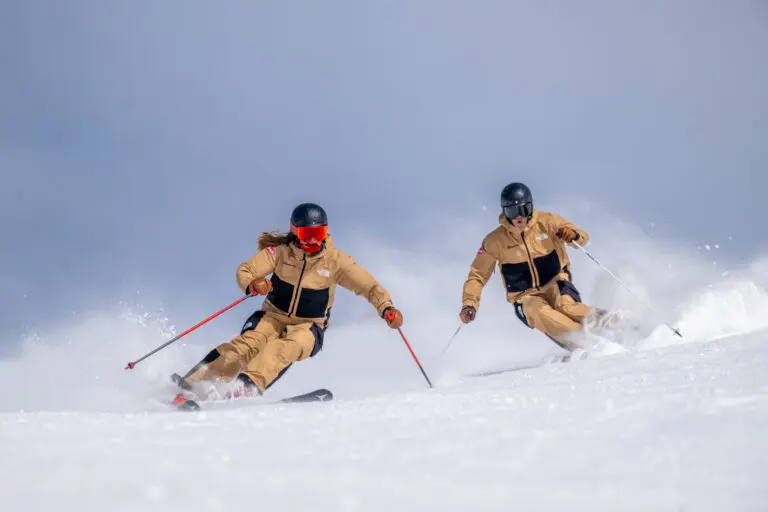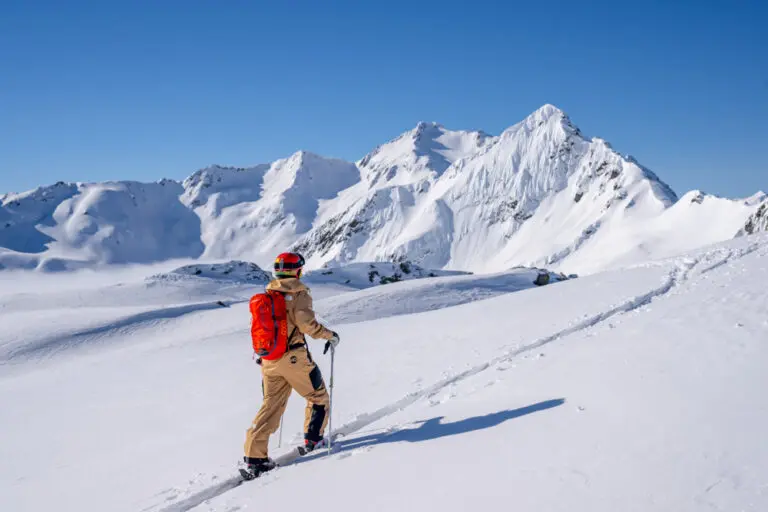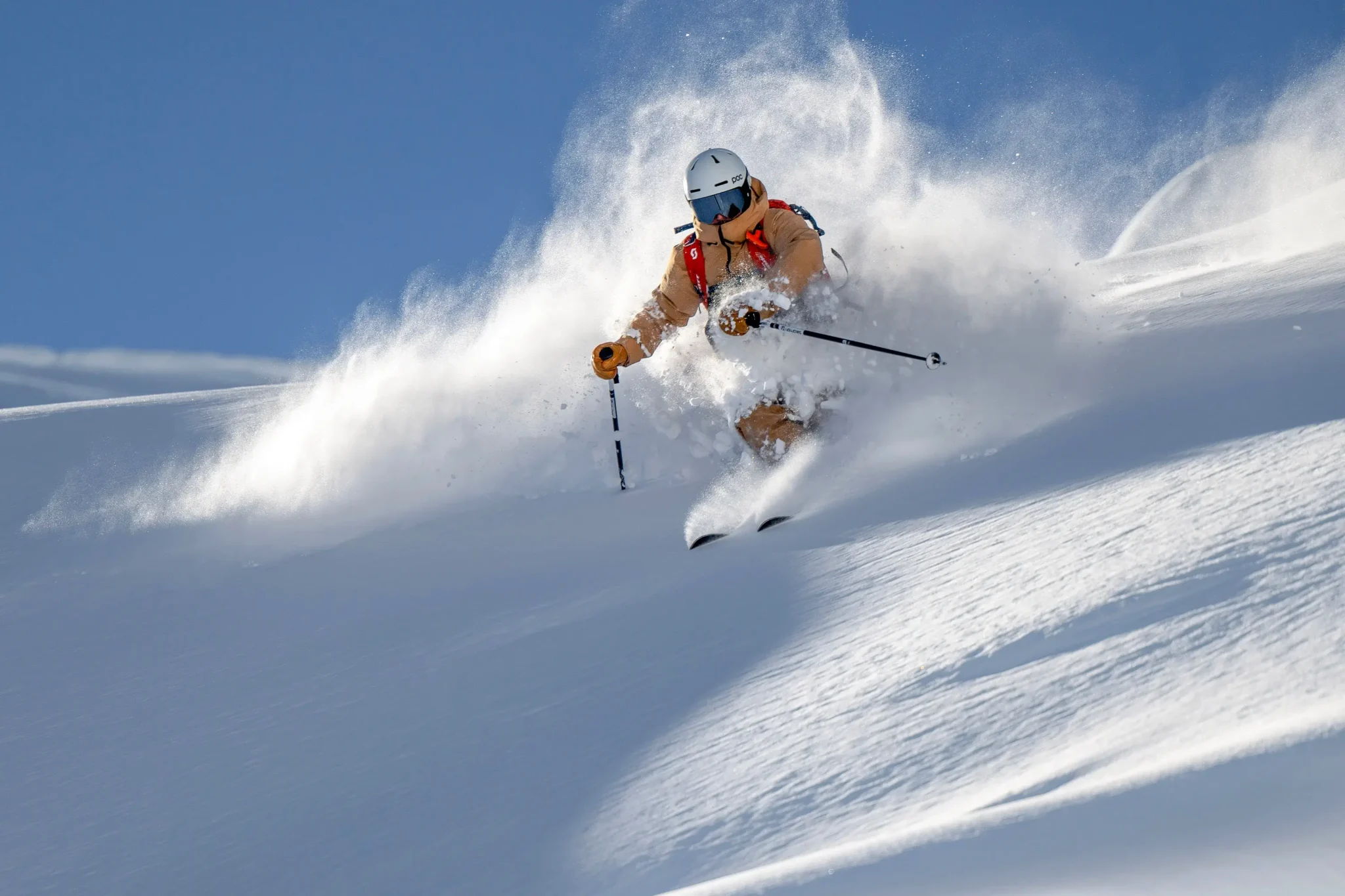Welcome to our guide to packing for your first ski holiday. Knowing what you’ll need can feel a little daunting, but we’ve got you covered with our Skiing Checklist for Beginners.
Get ready to have an incredible time hitting the slopes and enjoying world-famous après-ski. Exploring the mountains means encountering new and exciting places. The weather in the mountains can change quickly, and each day brings something unique—sparkling sunshine on the snow to enchanting fresh snowfall, creating a picture-perfect winter wonderland. This guide is here to help you prepare for any conditions.
What to pack
The Essentials
- Base Layers—To stay warm, wearing thermal leggings and a top is important. Three to four sets of these should do the trick for a week’s holiday.
- Fleece/Jumper—Adding an extra layer to your top half will create a cosy heat trap that keeps you warm and comfortable while hitting the slopes. Two or three of these will see you through the week.
- Ski Socks -Investing in good quality ski socks can make all the difference to your ski holiday. We recommend buying thin Merino wool ski socks. You’ll also find great quality ones at affordable prices in stores like Decathlon or TKMaxx. Just remember to wear only one pair at a time for maximum comfort. Depending on whether you’re happy to hand wash these or not, between 3-6 pairs.
- Outerwear—A waterproof jacket and ski pants are essential to protect you from the elements. You can opt for a shell jacket, which you can layer a down jacket underneath, or an insulated, slightly thicker jacket. Look out for a few key features, like a powder belt on the jacket to prevent snow from going up your back and a lift pass pocket on the left-hand sleeve.
- Ski Goggles—When skiing, it’s important to have goggles that protect your eyes from the sun and wind. Goggles are rated in four categories based on the amount of visible light they let through. Category 0 is for low-light or night skiing, while category 4 is for strong sunlight and high altitudes. We recommend going for a category three lens for general use. If possible, choose a photochromatic lens or goggles where you can change the lens.
- Buff—We all know you want to go home from your holiday with that all-important skier tan! But on the days when it’s snowing, a buff is invaluable, keeping your face protected from the wind and snow.
- Gloves/Mittens – One pair of insulated and waterproof gloves or mittens to keep those fingers nice and toasty. Mittens are typically warmer than gloves but can make it harder to undo boot buckles and unzip your jacket. The choice is yours.
- Helmet—Last but certainly not least is a helmet, the most important thing you’ll wear on the mountain. You can rent helmets from local ski hire shops. All helmets are checked regularly and are never older than three years old. Helmets are compulsory for children in ski lessons, and it’s good for adults to set an example.
Accessories
- SPF – Factor 50 mountain suncream. Yes, it could be extremely cold, but that doesn’t make the sun any less intense. The reflection from the snow can make it even stronger, so having a pocket-sized factor 50 sunscreen is essential.
- SPF lip balm—You can now find some lovely high SPF lip balms, such as Albus and Flora, in natural or subtle tints. They protect everyone’s lips, from children to the most glamorous, and they’re perfect for going straight to apres-ski!
- Rucksack/Bum Bag—for carrying a bottle of water, a snack, and layers in case you get too hot. If you prefer not to have a rucksack, a bumbag keeps the small essential items in and is less likely to impact your skiing stance.
- Beanie—If you want to keep warm or are worried about hat hair from wearing your helmet, a beanie hat is a good idea to pop on when stopping for lunch or heading to apres-ski.
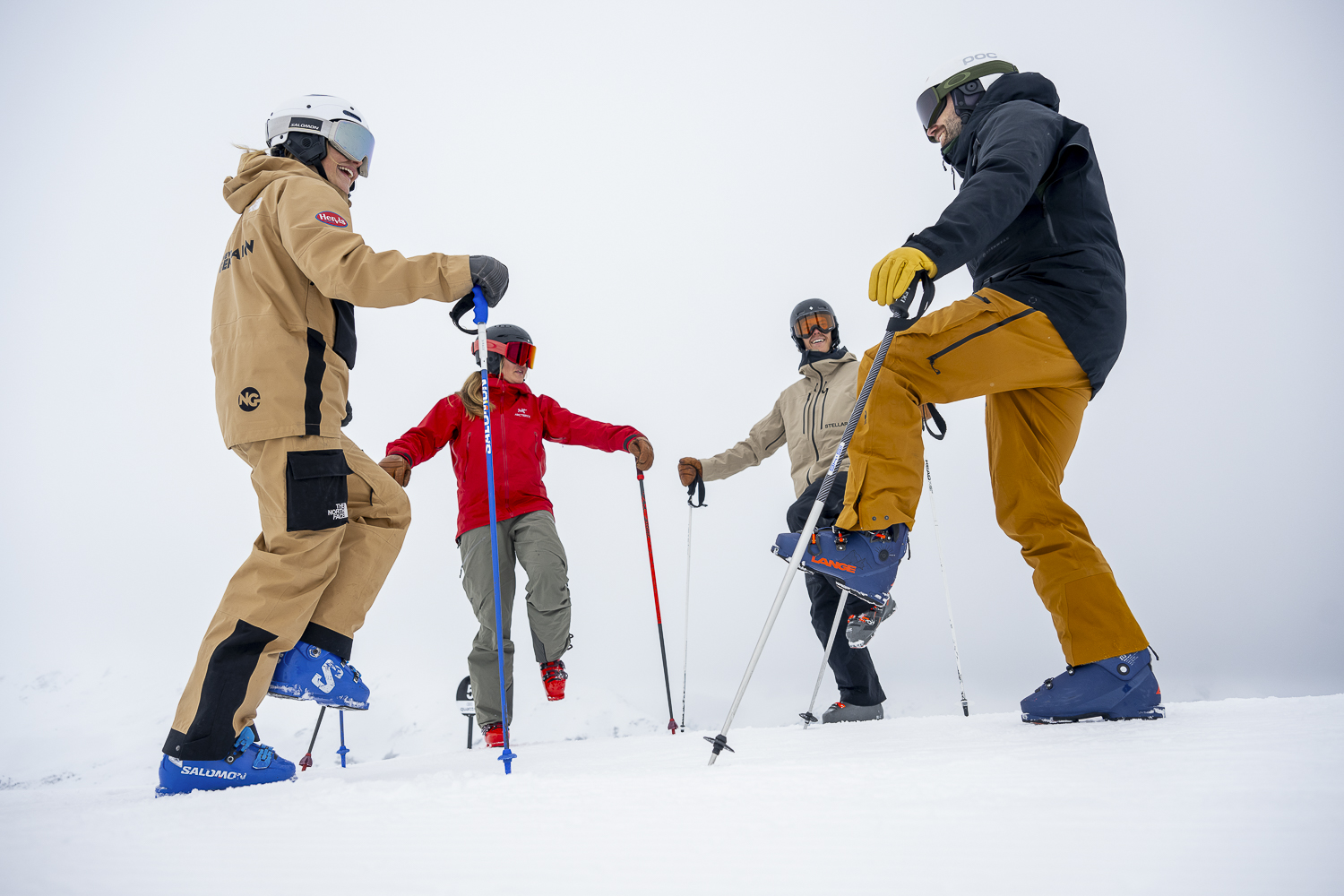
Additional Items
- Toothbrush/Toothpaste
- Hairbrush/Hairbobbles—Plaiting helps keep hair under control while skiing and fresh for apres-ski!
- Shampoo, Conditioner, and body wash—Depending on where you’re staying, your chalet or hotel bathroom may have small travel-sized ones.
- Small first aid kit – you may need treatment for aching muscles, bruises and blisters.
- Jeans or trousers
- Tops and jumpers—Although it’s cold outside, many restaurants pump up the heating, so it’s best to bring a mixture of long—and short-sleeve tops. Warm, cosy jumpers are a must, but often inside, they’re too warm to wear.
- A pair of comfortable walking or outdoor shoes with a good grip in the snow—The mountains aren’t the place for heels, but some stylish items, such as Fairfax & Favor or Sorel, are still available.
- Travel plug adaptors
- Shaving kit
- Moisturiser– The mountain air can be pretty dry, so keep your skin moisturised.
- Portable phone charger—It might sound strange, but cold weather drains your phone battery faster than usual.
- Swim stuff—even if there isn’t a hot tub in your chalet or hotel, there is likely to be a pool or spa in the resort, so if you fancy a more chilled day or a nice soak after a hard day of skiing, you should bring your swimming outfit.
- Lighter gloves and hats– We recommend these for evenings or apres-ski so that you can get to and from bars and restaurants without getting too cold. You can always wear your ski jacket over your regular clothes, as it will be more thermally insulated than a regular jacket.
- Cash is king in the mountains. Paying in cash helps small businesses, saving them from the bank charges when paying by card. Plus, it’s super handy for those all-important tips!
- Travel Documents – Passports, boarding passes, driving license.
What to Book
- Lessons – Group lessons, private lessons, off-piste adventures, ski touring. We can help you get the most out of your time in the mountains from beginner to expert, we have lessons for everyone.
- Ski Hire – Once you book lessons with us, you’ll receive a link to get up to 50% off with Skiset.
- Chalet/Hotel – There are many options depending on your budget and how luxurious you want your first holiday to be. From budget-friendly hotels with tour operators such as Alpine Elements or apartments on Air B&B to top-end Chalets and Hotels, giving you that 5* experience.
- Transfers – from the airport/train station to the ski resort.
- Restaurants – Book in advance to ensure you don’t miss out on the best places to eat on the mountain. If you’re staying in a chalet, the chef will have a night off, so booking a restaurant in advance is best, especially if you’re coming during the school holidays.
- Extra activities – include dog sledding, hot air balloon rides, zip lines, spa treatments etc.
What to take on the mountain each day
- Pocket-sized suncream
- Snack + water – a squeezy collapsible water bottle works well as it takes up less room in your pocket.
- Cash
- Portable charger
- Sunglasses
- Hat – to wear at lunch when you’ve taken your helmet off (tame your helmet hair)
We hope you found our Skiing Checklist for Beginners useful. The most important things to remember are to stay safe and have fun!

